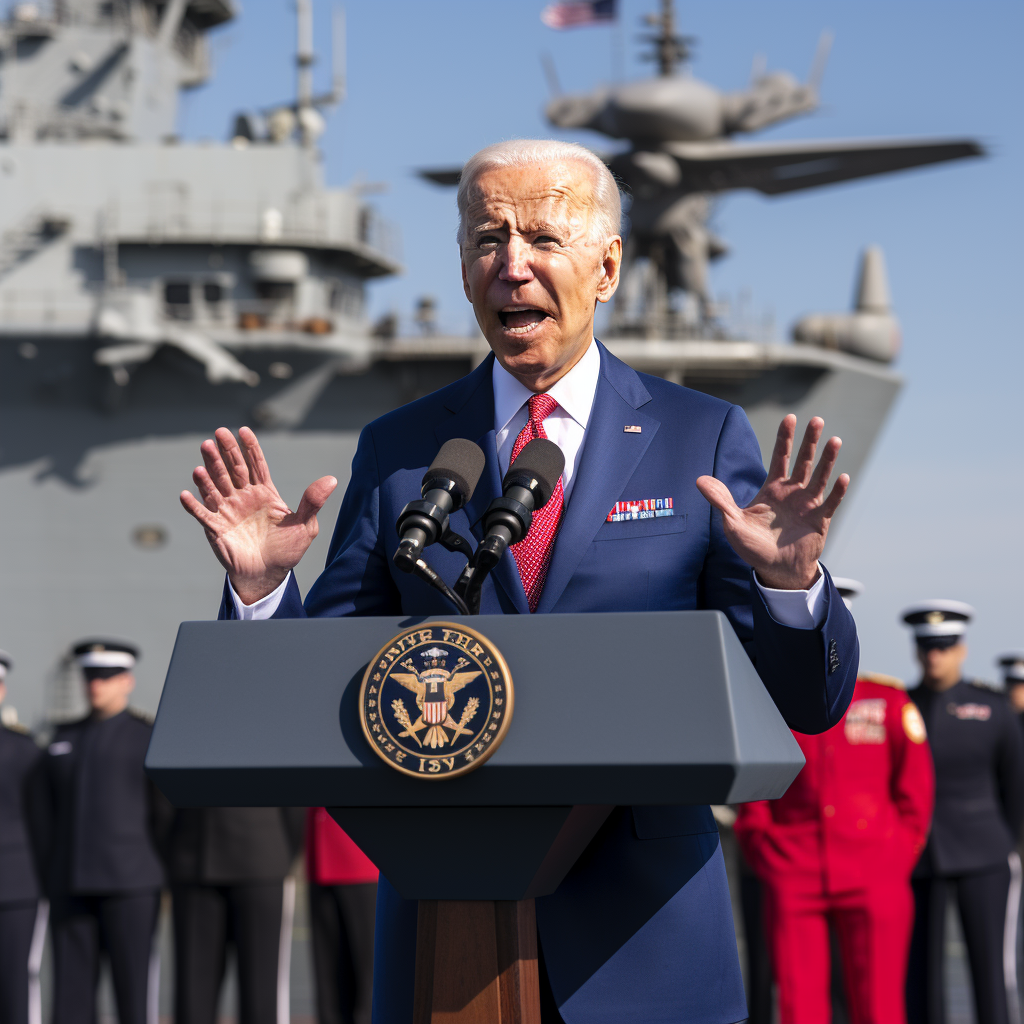Washington, D.C. — In a move that has left the world both confused and amused, the United States has issued a renewed call for a ceasefire in the ongoing conflict, despite being the primary supplier of the very weapons being used. The latest statement from the U.S. State Department emphasized the need for an “immediate cessation of hostilities,” while also approving another billion-dollar arms deal to support the side supposedly defending itself.
“We strongly urge all parties to lay down their arms and pursue peaceful negotiations,” said Secretary of State Antony Blinken, standing in front of a backdrop that conspicuously featured the latest American-made fighter jets and missile systems. “It’s crucial that we work together to end the violence. And by ‘work together,’ I mean we’ll keep sending you weapons, but, you know, peacefully.”
The irony has not been lost on international observers, who are scratching their heads at the juxtaposition of peace rhetoric with war logistics. The U.S. has become a vocal advocate for peace talks, even as it ships advanced weaponry to its preferred ally. In the latest twist, Blinken proposed a novel idea: a ceasefire where only one side ceases, while the other gets a temporary discount on guided missiles.
“We’re really trying to have it both ways,” admitted one anonymous State Department official. “We want to be seen as the global peacekeeper while maintaining our status as the world’s leading arms dealer. It’s like trying to sell fire extinguishers while you’re setting fires, but with a lot more money and fewer consequences.”
As civilian casualties mount, the U.S.’s insistence on a ceasefire has begun to sound less like a plea for peace and more like a surreal exercise in cognitive dissonance. President Joe Biden, in a rare unscripted moment, addressed the issue directly: “Look, we can’t let this thing drag on forever. That’s why we’re calling for peace while simultaneously ensuring our weapons keep flowing. It’s what I like to call ‘controlled chaos,’ but with an emphasis on the chaos.”
Meanwhile, critics both at home and abroad have pointed out the sheer absurdity of the situation. “The U.S. calling for a ceasefire is like a chef asking people to stop eating while serving up a five-course meal,” said one European diplomat. “It’s hard to take seriously.”
The arms industry, however, is thriving under this bizarre doublethink. Defense contractors are reporting record profits, with stocks in major companies like Lockheed Martin and Raytheon surging. “Peace is profitable,” said a gleeful Wall Street analyst, “as long as you define peace as a brief intermission between the sound of bombs dropping.”
In the conflict zones, those on the receiving end of American-made munitions are understandably skeptical of the ceasefire calls. “It’s a bit confusing, to be honest,” said a local in the affected area. “One moment we’re hearing about peace talks, and the next, there’s a drone strike. It’s like they’re trying to gaslight us from 10,000 miles away.”
Despite the contradictions, the U.S. government continues to push its narrative of being the world’s moral compass. Plans are already underway for a new peace conference, which will be held at a luxurious resort far from any conflict zones, complete with open bars, five-star catering, and, according to insiders, a secret exhibition of the latest in military technology.
As the world looks on, one thing is clear: when it comes to achieving peace, the U.S. is committed to exploring every possible avenue—except, perhaps, the obvious one.

